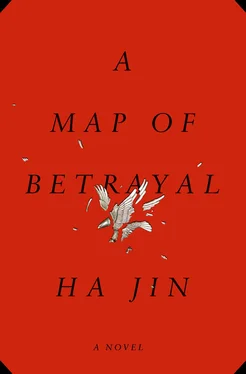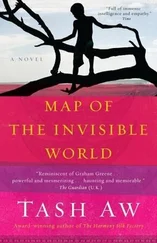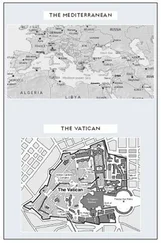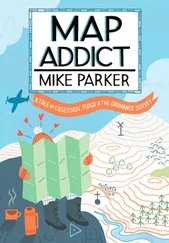This proved easy for Gary. He’d been observing the Ping-Pong diplomacy intently, and the information flowing through his hands had convinced him that the United States was serious. He wrote a comprehensive report that argued for pushing forward to restore a normal relationship with the United States. He took photos of some key documents as evidence for his views. He delivered the intelligence through Father Murray, because he couldn’t go to Hong Kong in 1971. His wife, suffering from gallstones, had been housebound for months. Although urged by her doctor and her husband to have an operation, Nellie was terrified of the scalpel, and as a result, she had to bear more pain. If Gary had taken a vacation in the Far East under such circumstances, he might have aroused the suspicion of the CIA or the FBI.
Far away from his homeland, he was ecstatic to see the rapid progress in the two countries’ relationship. Apparently the Chinese leaders had made full use of his intelligence, which had reinforced their resolve to receive the Americans with open arms.
IN THE SUMMER OF 1972, five months after Nixon’s visit to Beijing, Nellie had recovered from an operation (she finally agreed to it because her pain had grown unbearable) and resumed working at Peggy’s Kitchen, and Gary went to Bangkok again. From there he flew to Hong Kong a week later. This time, besides Bingwen, Hao Ding, who was the new minister of national security and in charge of China’s intelligence work, received him. Gary knew of Ding, a squat man with a high forehead and fat ears, whose father had been a legendary figure in the Communists’ intelligence community, a founder of the system. A sumptuous banquet of Mandarin cuisine was held at Phoenix Garden on a backstreet in Causeway Bay in honor of Gary, who had earned praise from the top national leaders. Five strange men, all from the mainland, were also present. One of them had no eyebrows, was as bald as a honeydew, and was chugging down cola instead of tea. Two of them seemed to be high-ranking officials, similar to Ding. Probably they had all taken this junket to Hong Kong on the pretext of honoring Gary. It was at this dinner that Gary heard about Mao’s remark about him being “worth four armored divisions.”
After two cups of Maotai, Ding gave a brief speech. He spoke solemnly in a subdued voice, saying that Gary’s invaluable intelligence had enabled China to handle international politics and diplomacy with prescience and assuredness, so the country had awarded Gary a special merit citation. On behalf of the Politburo, Ding apprised Gary of a great promotion — now his rank was the eighth and he was appointed a vice minister of national security. In addition, twenty thousand dollars had just been deposited into his bank account. Ding ended by saying to Gary, “Now you and I are equal in rank. Congratulations, my comrade!”
Bingwen, overwhelmed by the announcement as if Gary’s honors were his own, said with his mouth slightly awry, “Brother, you’re a big man now. I’m so happy for you!”
Gary was stunned by the promotion and touched by his friend’s words. He told them, “Whatever I did was out of my deep love for our motherland. A spy’s life can be miserable and lonely”—his voice caught—“but when I think that hundreds of millions of people might benefit from my service and that our country might be safer because of the intelligence I have gathered, I feel that my personal pain and privation are no longer worth fretting about. Please let our national leaders know I am grateful and will serve our country more diligently.” He had to stop, his throat constricting while tears filled his eyes.
All the men nodded approval. Ding, chain-smoking cigarettes out of an ivory holder, told Gary that they would love to see him retire safe and sound back in China someday so he could spend his remaining years happily with his family. That also meant their country would take care of him for life. The banquet continued for two more hours, until Ding got tipsy and began making smutty remarks about Hong Kong women.
On the double-decker tram back to Central, Bingwen was still excited and exuberant. He said to Gary, “You know, in terms of rank, you’re a major general now. I’m so glad you made it.”
Lounging on the hardwood seat the two were sharing, Gary replied, “Well, I was surprised when Hao Ding told me about the promotion. But come to think of it, it really doesn’t mean much to me — it might not affect my life one bit there. I’m just a translator at the CIA, like a lowly clerk.”
“But you are our hero!” Bingwen persisted. “Your feats will go down in our Party’s intelligence history. You’re a dagger plunged in the enemy’s heart.”
Gary twitched as his insides tightened. Through the window, a cinema flitted by, flaunting a garish ad for the Bruce Lee movie Fist of Fury . In the north a lone light kept flashing on the murky water as if it were signaling a message. Gary was a heartbeat from saying he’d trade any heroic name for a normal life, but he closed his eyes as if he were about to drift off to sleep. He stifled the urge to cry.
A moment later he managed to say, “Please make sure Yufeng and our kids will receive all the privileges that a vice minister’s family is entitled to.”
“Of course we’ll do that,” Bingwen said.
TWO MONTHS LATER, in a conference room at CIA headquarters, more than two hundred of Gary’s colleagues were seated. George Thomas, now the chief of the East Asia Division, was presiding over the meeting, at which three employees were to receive a medal for distinguished service. He talked about the uniqueness of this year’s awards, every one of them approved by Director Helms personally. Over the past decade Thomas’s demeanor had grown somewhat senatorial, especially after he’d earned his PhD, and his tongue was more limber now — he could speak to an audience about any topic at length. One of the honorees was a woman of Cuban descent, an expert on Indochina; another was a Japan hand, a hulking man in his early sixties who had served as a captain in the U.S. Navy, had a Japanese wife, and would on a fine day canoe across the Potomac to work at the CIA; and the third was Gary Shang, recognized for his invaluable analyses and acumen, which had helped the United States find ways to engage China. Gary wore a blue double-breasted blazer, a red paisley tie, and tassel loafers, smiling while listening to Thomas praise the recipients for their work and dedication.
The moment Thomas read out the citation for the Indochina expert, the woman went over to accept her medal, contained in a small maroon box. She was somewhat rotund but wore wedges, teetering a little as she walked. Yet like a soldier, she turned to face her colleagues, clicked her heels together, and raised her hand to her temple in a salute. That evoked laughter from the room. Next went the Japan hand, wearing a brown corduroy jacket with leather elbow patches. His stooped back gave him a hump and also the nickname Dromedary, which nobody dared to use in front of him. He took the medal from their chief, wheeled around to the audience, kissed the box, and called out, “Thank you. Love you all!”
Thomas got emotional and long-winded when it was Gary’s turn. After reading out the citation, the chief added a personal note, saying, “Gary Shang is a longtime colleague of ours and doesn’t need an introduction. You all know he’s one of the most accomplished translators and an expert in our profession. I’m proud of having known him for twenty-three years — that is to say, since he was a young man. In fact, I recruited him in Shanghai in 1949, after I interviewed dozens of people. He was the only one we took on. Gosh, how handsome and youthful the chap was. Every one of us at the cultural agency was impressed because Gary stood out in many ways. Smart, quick, prudent, and knowledgeable. Since then he and I have been working together, first in south China, next in Okinawa, then in the DC area. I’m not good at judging people, but one of the best things I did in my professional life was to hire Gary. He’s a model of devotion, diligence, and loyalty. I count him not only as an outstanding colleague but also as a dear friend. Now, welcome Gary Shang.”
Читать дальше











